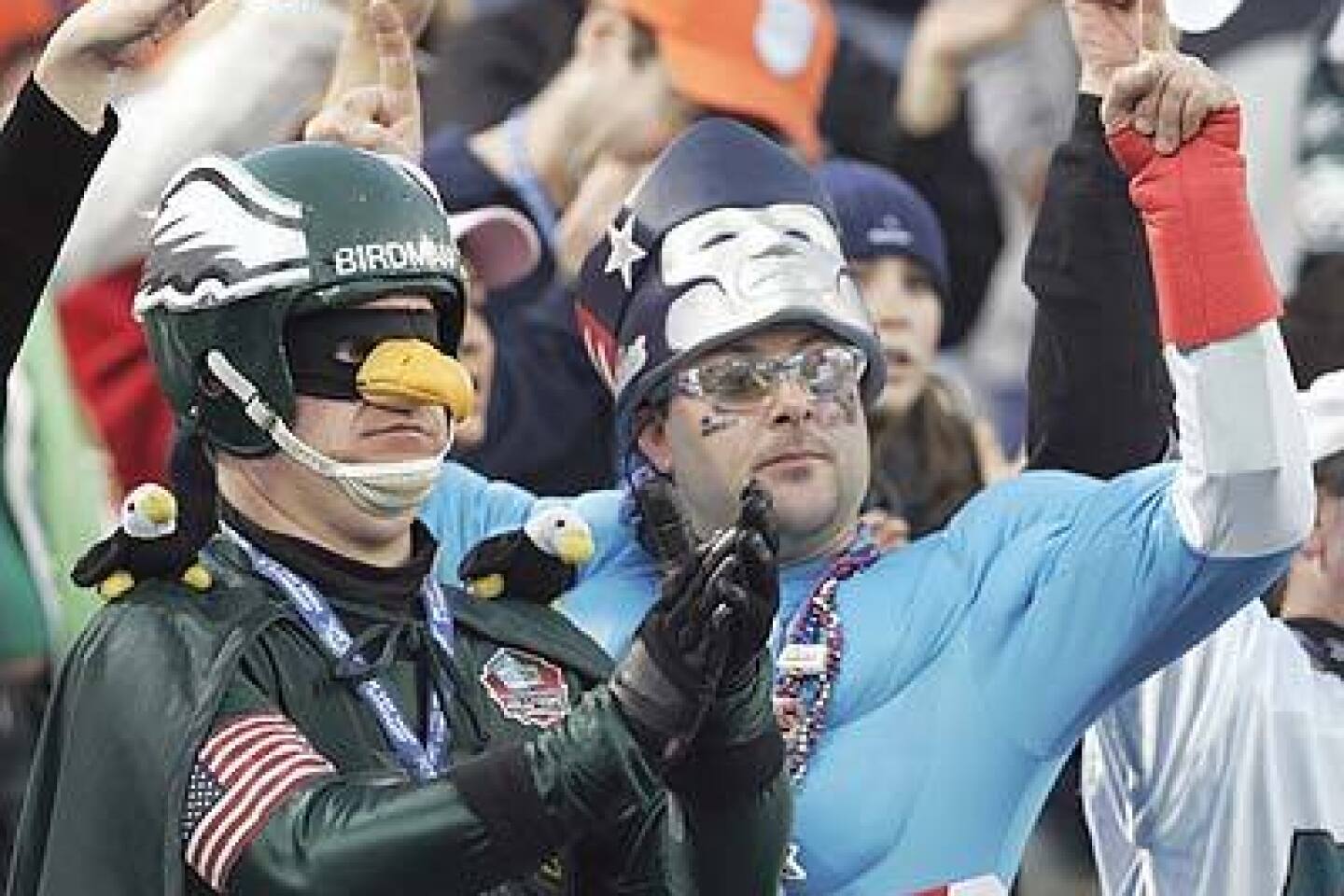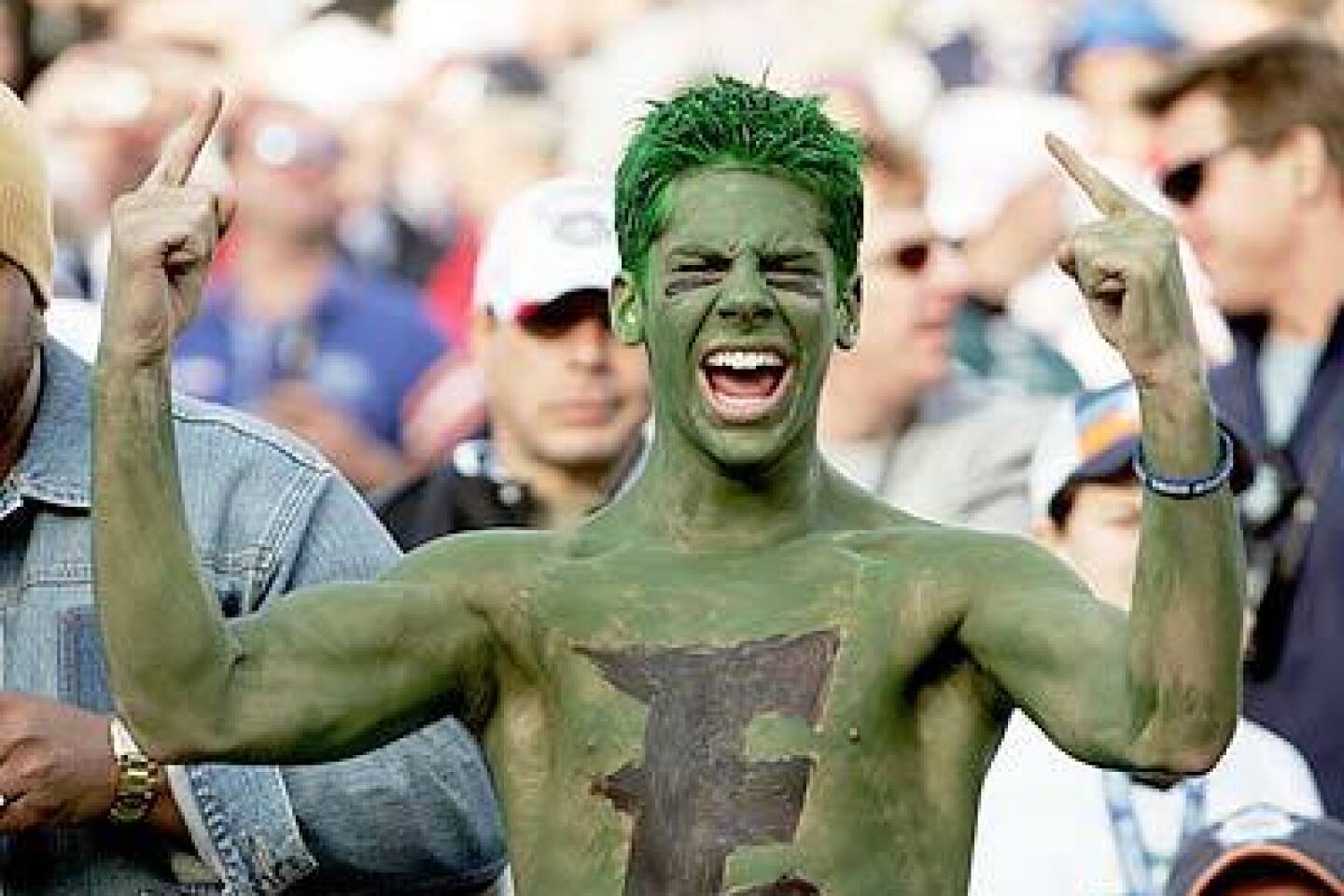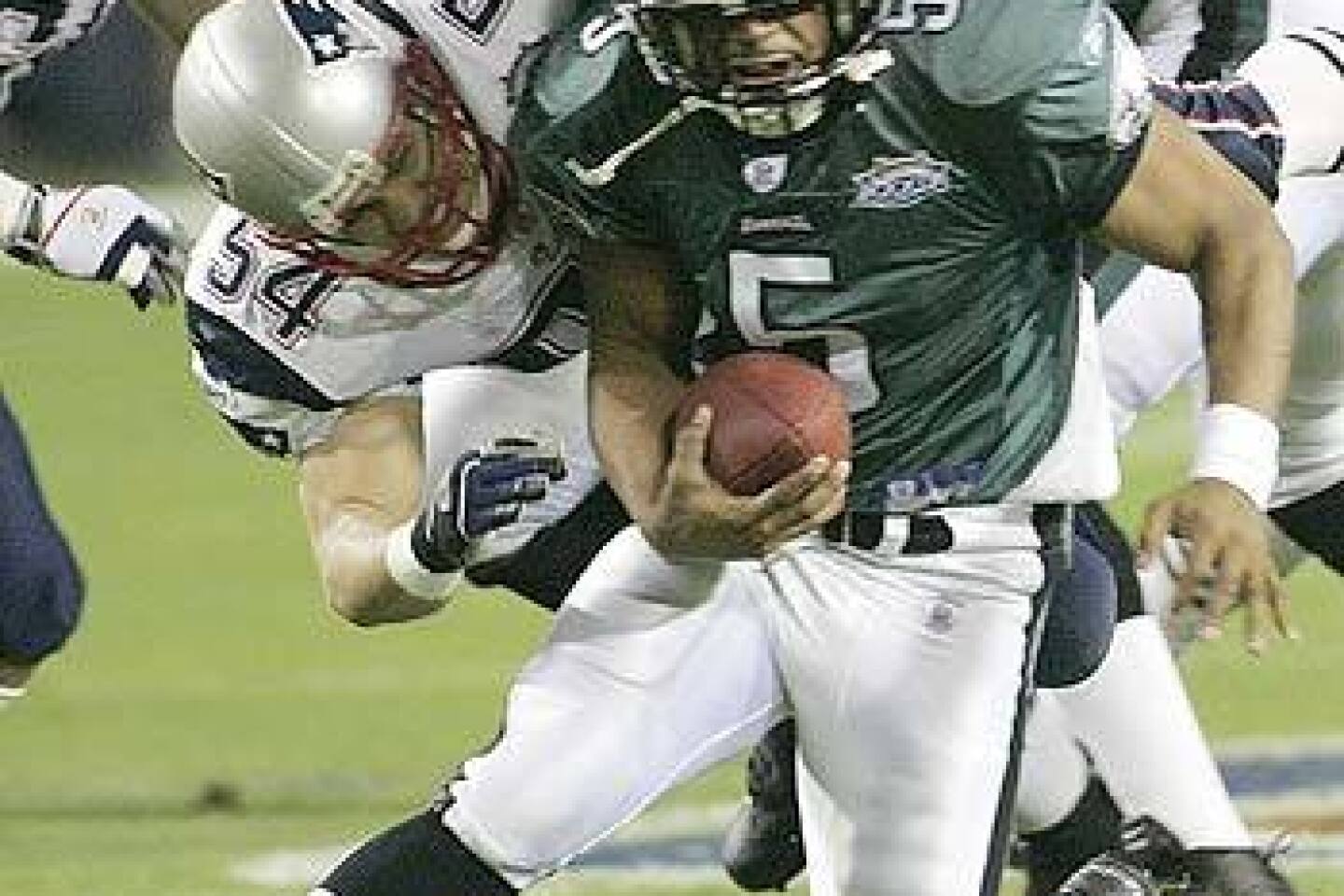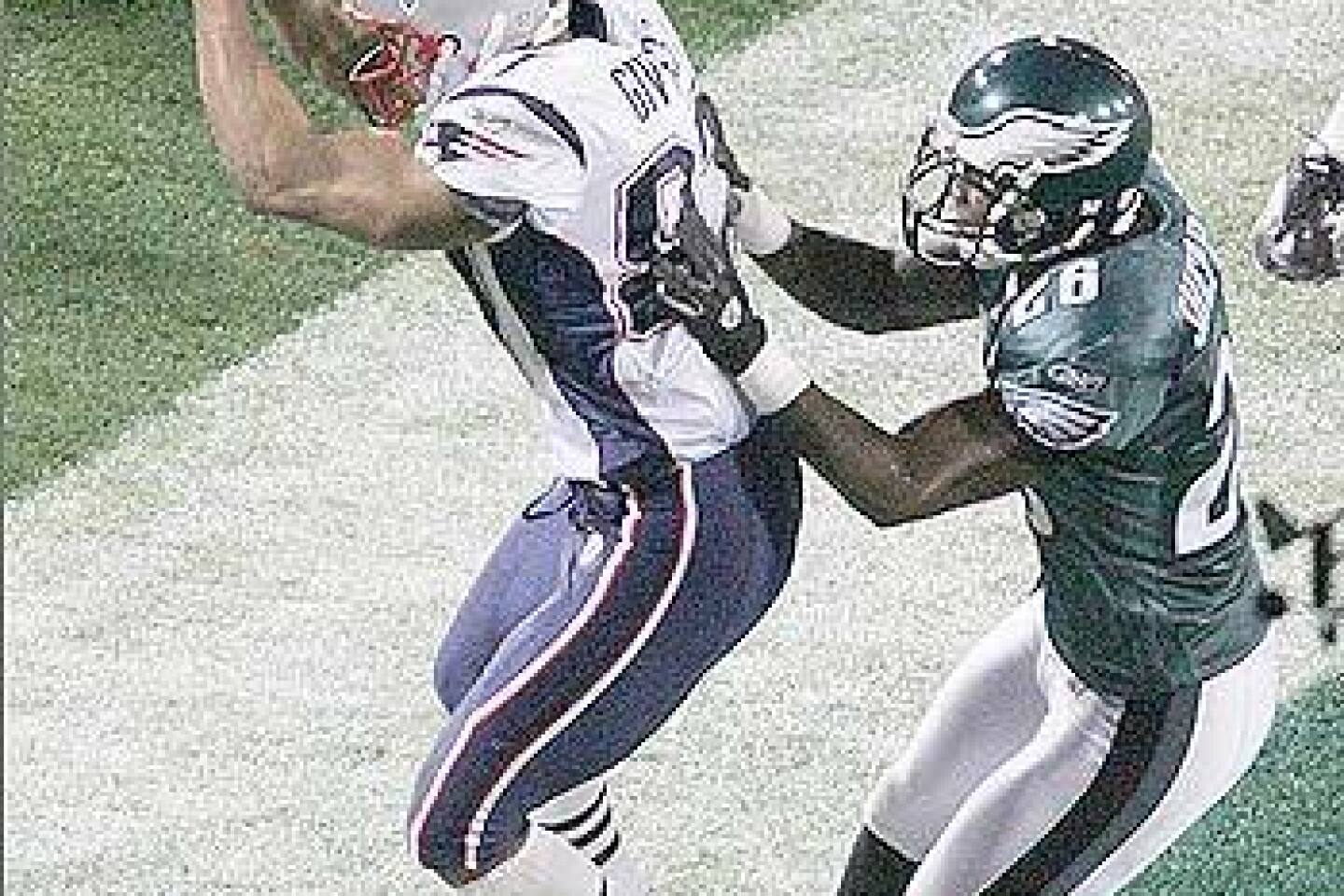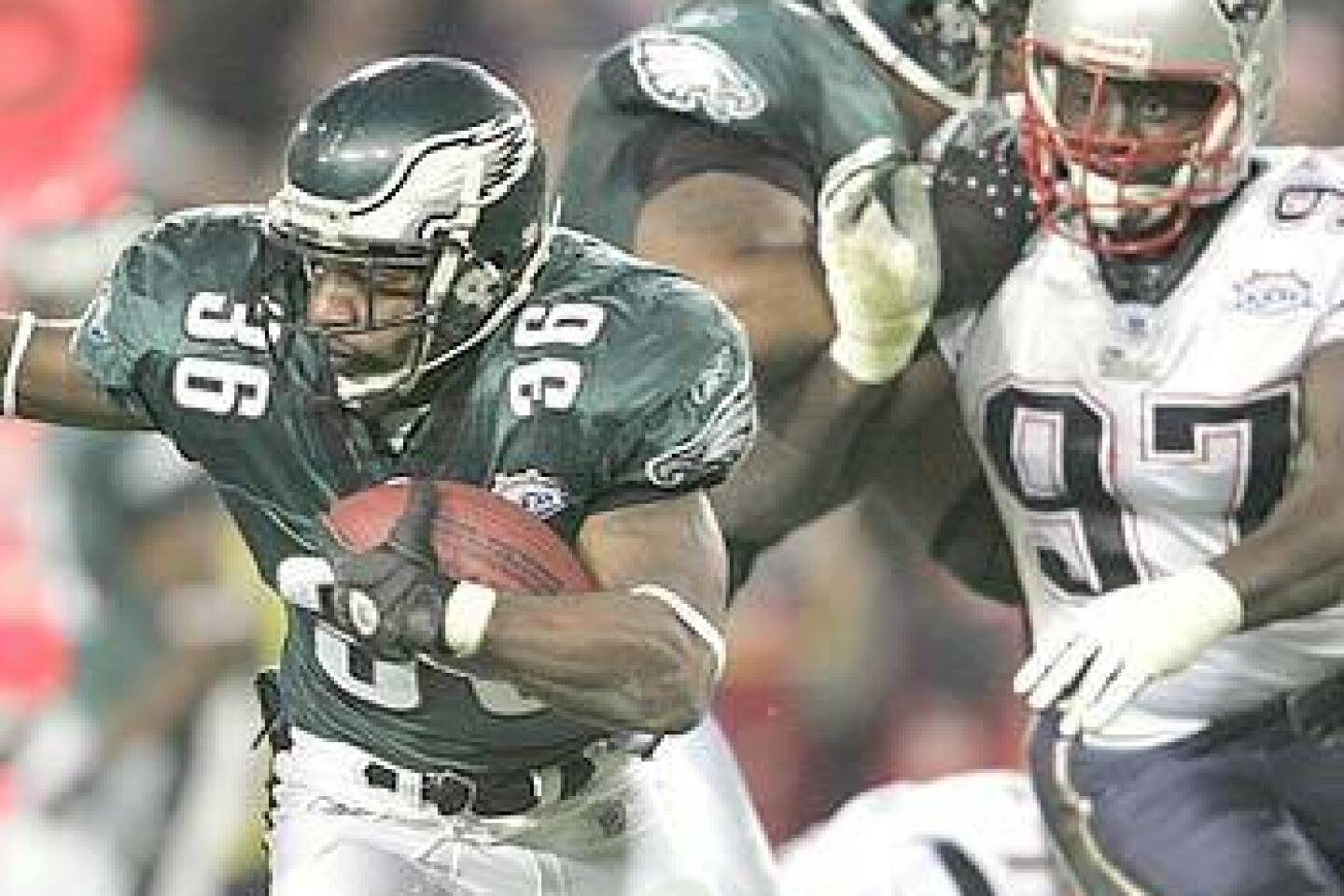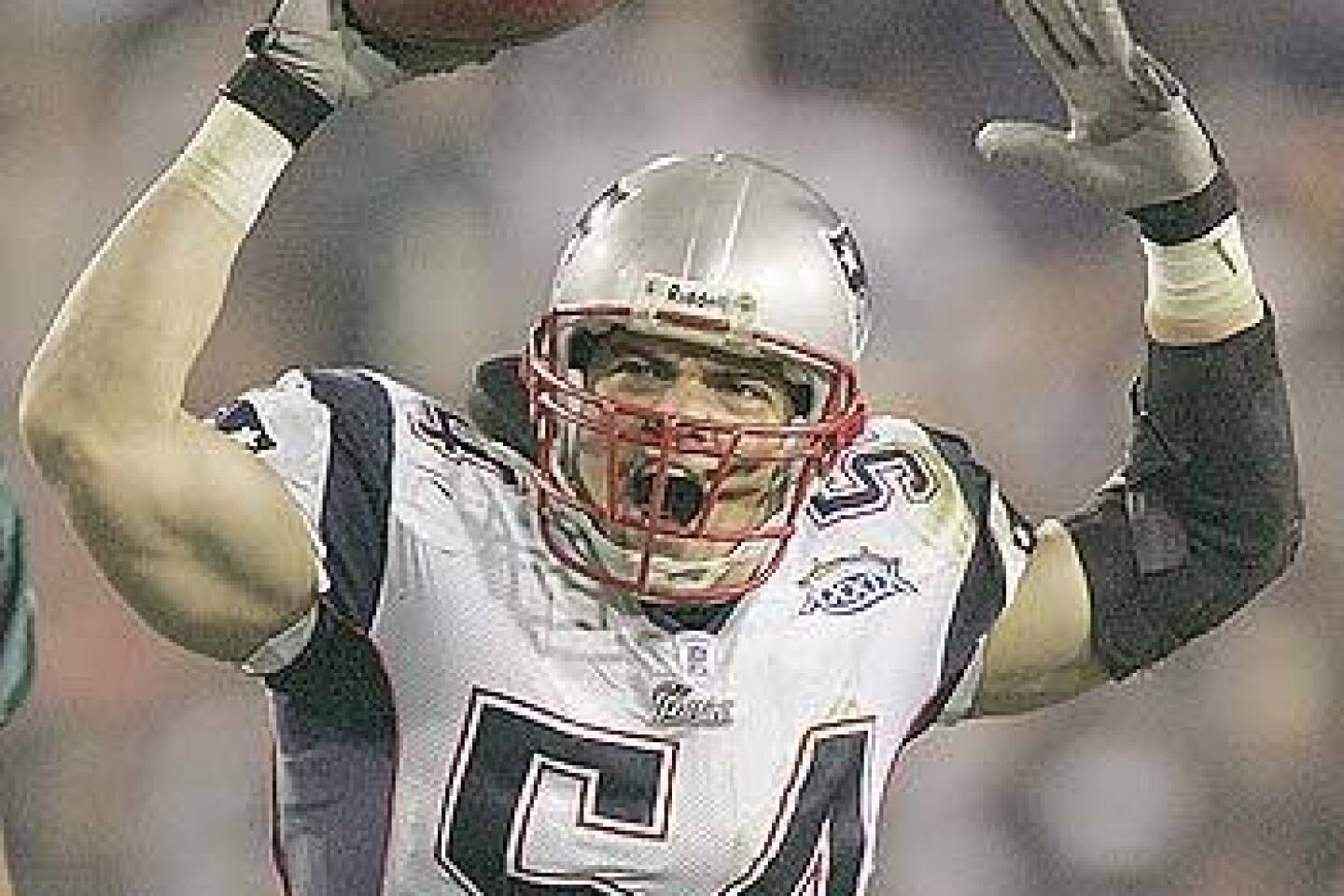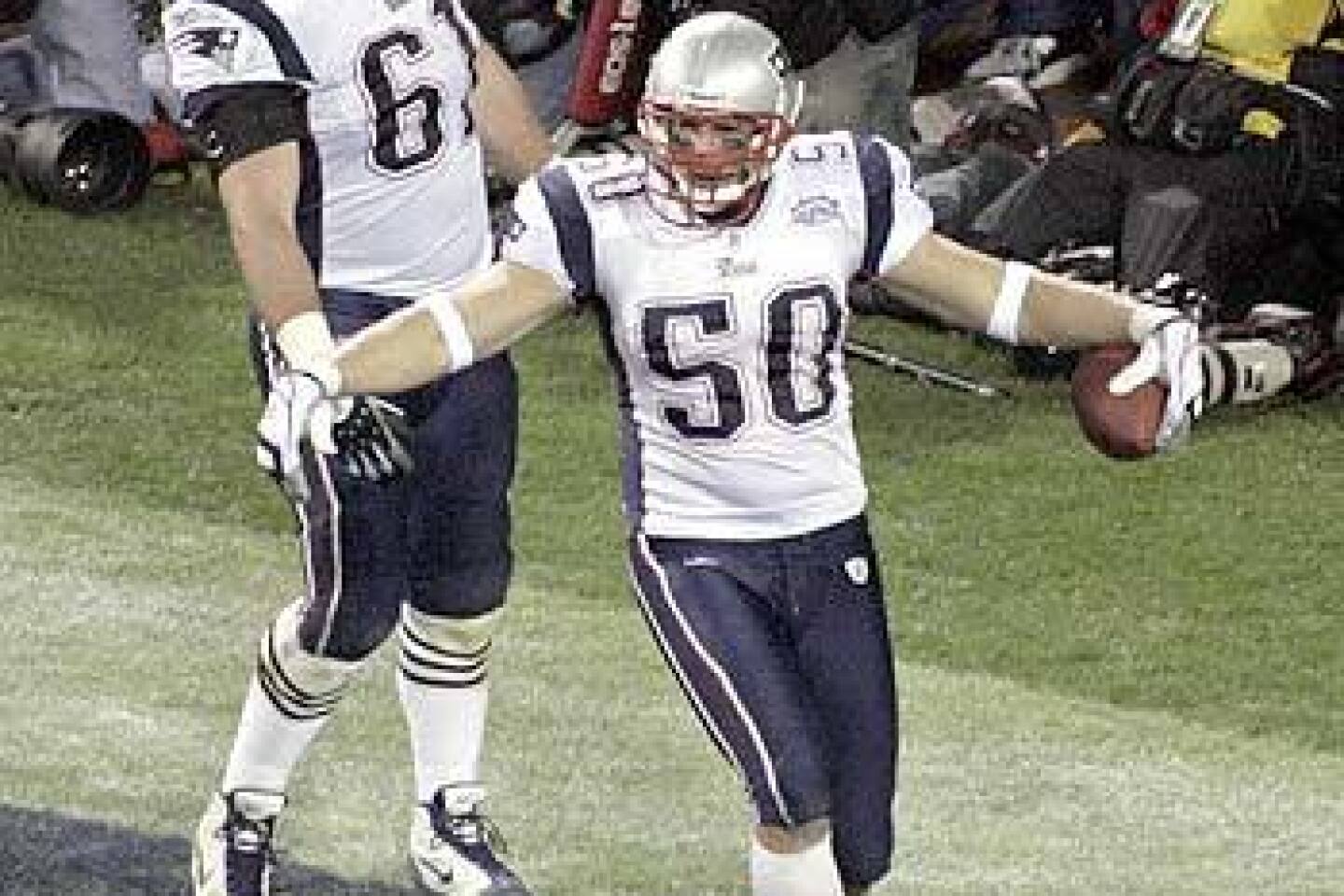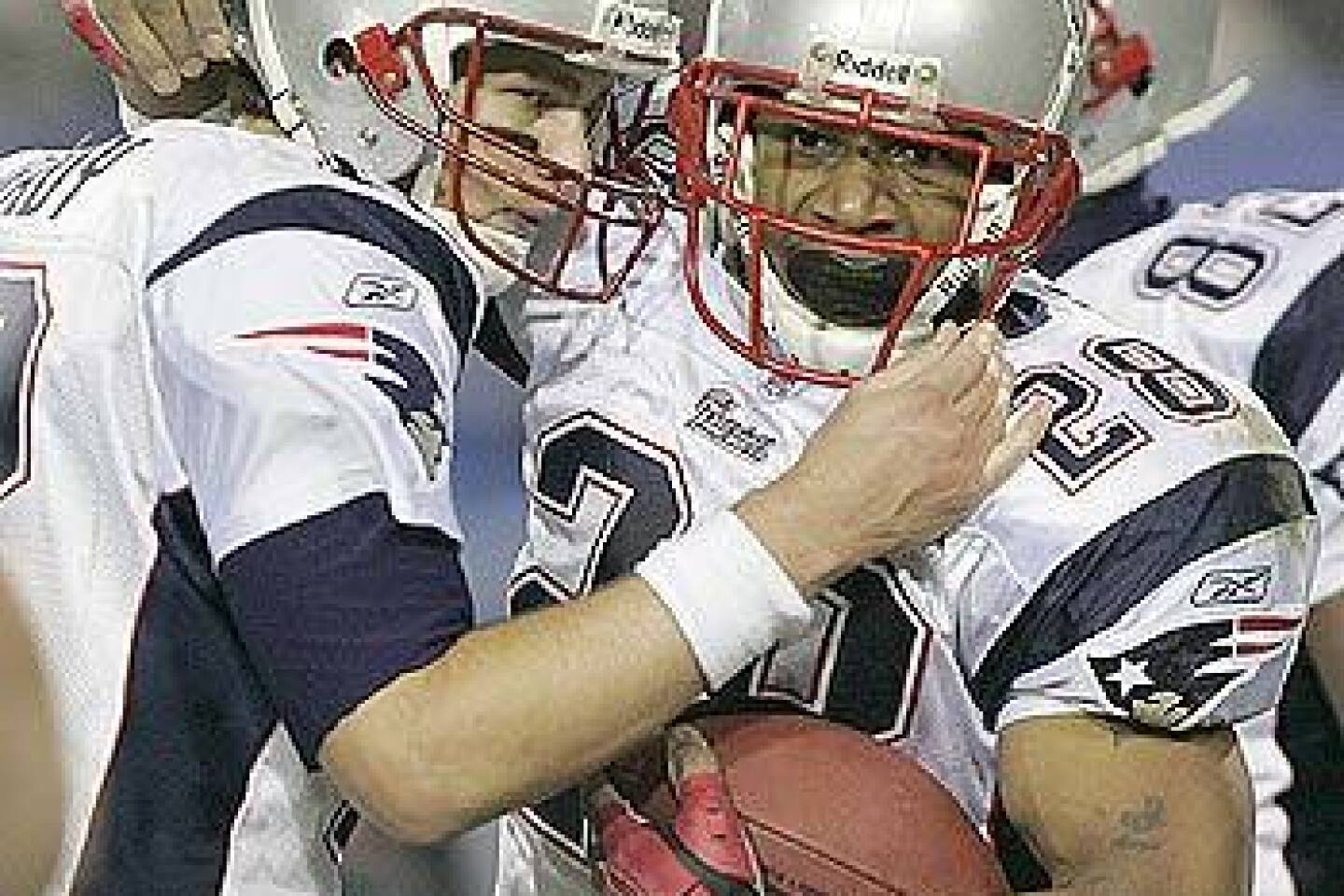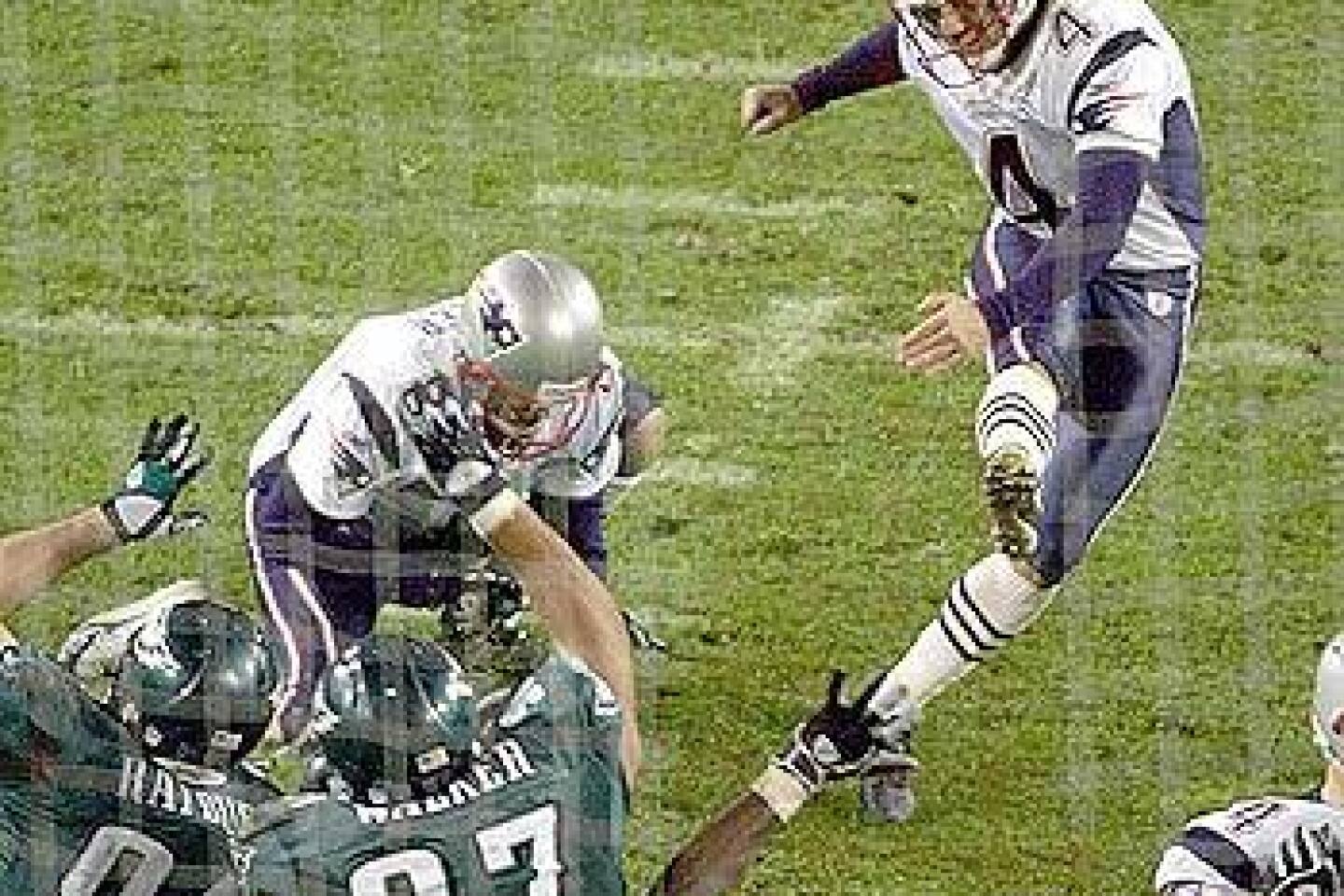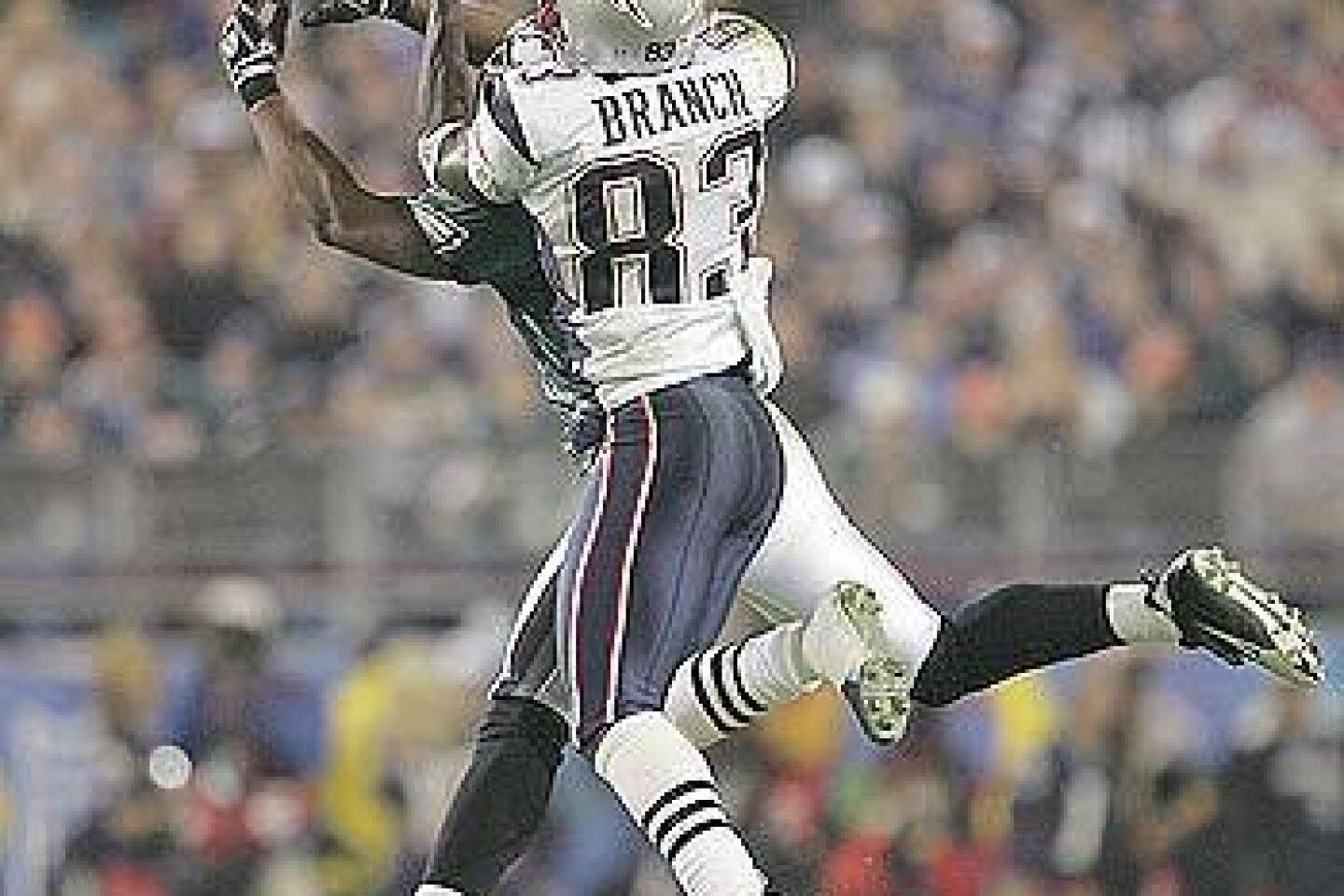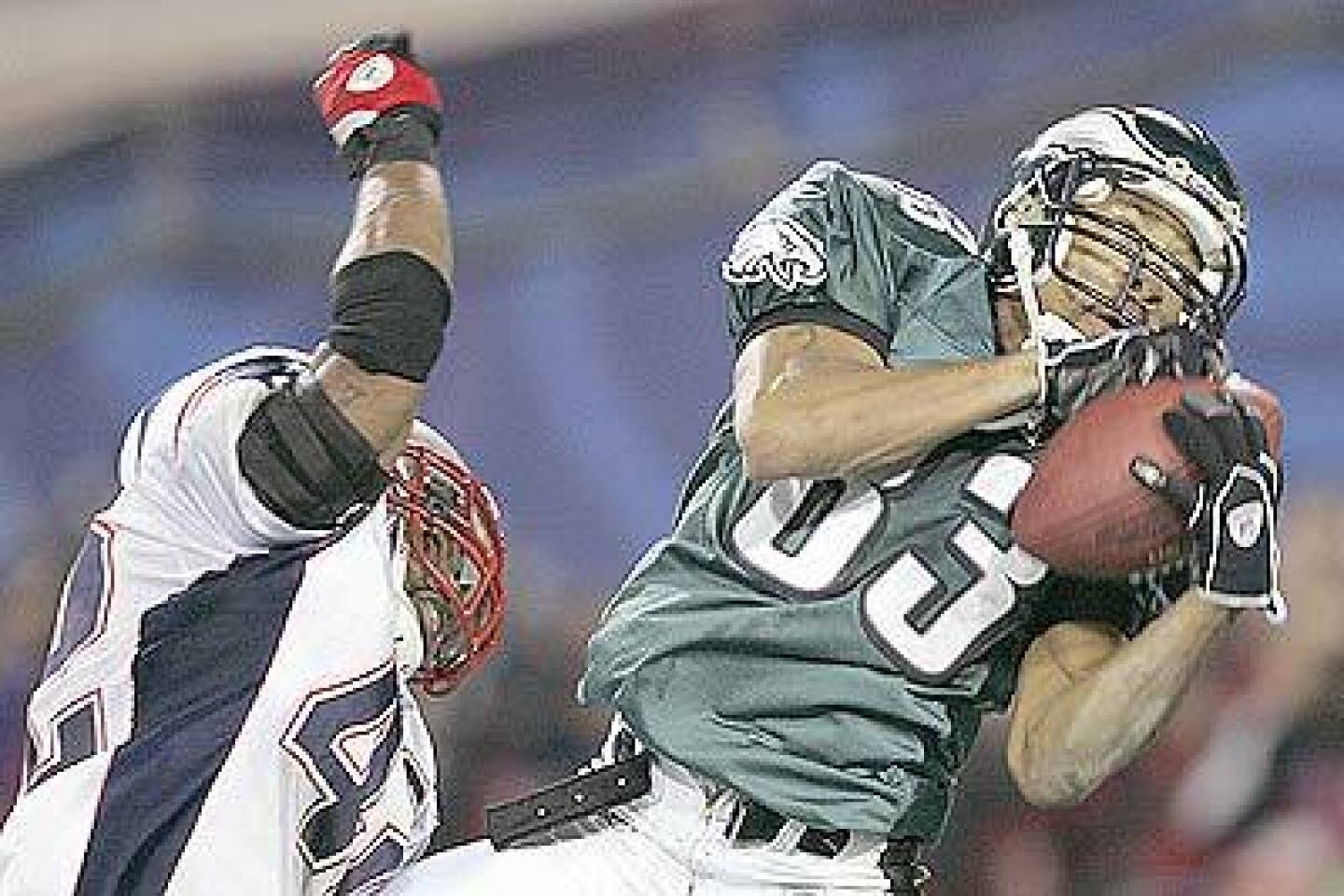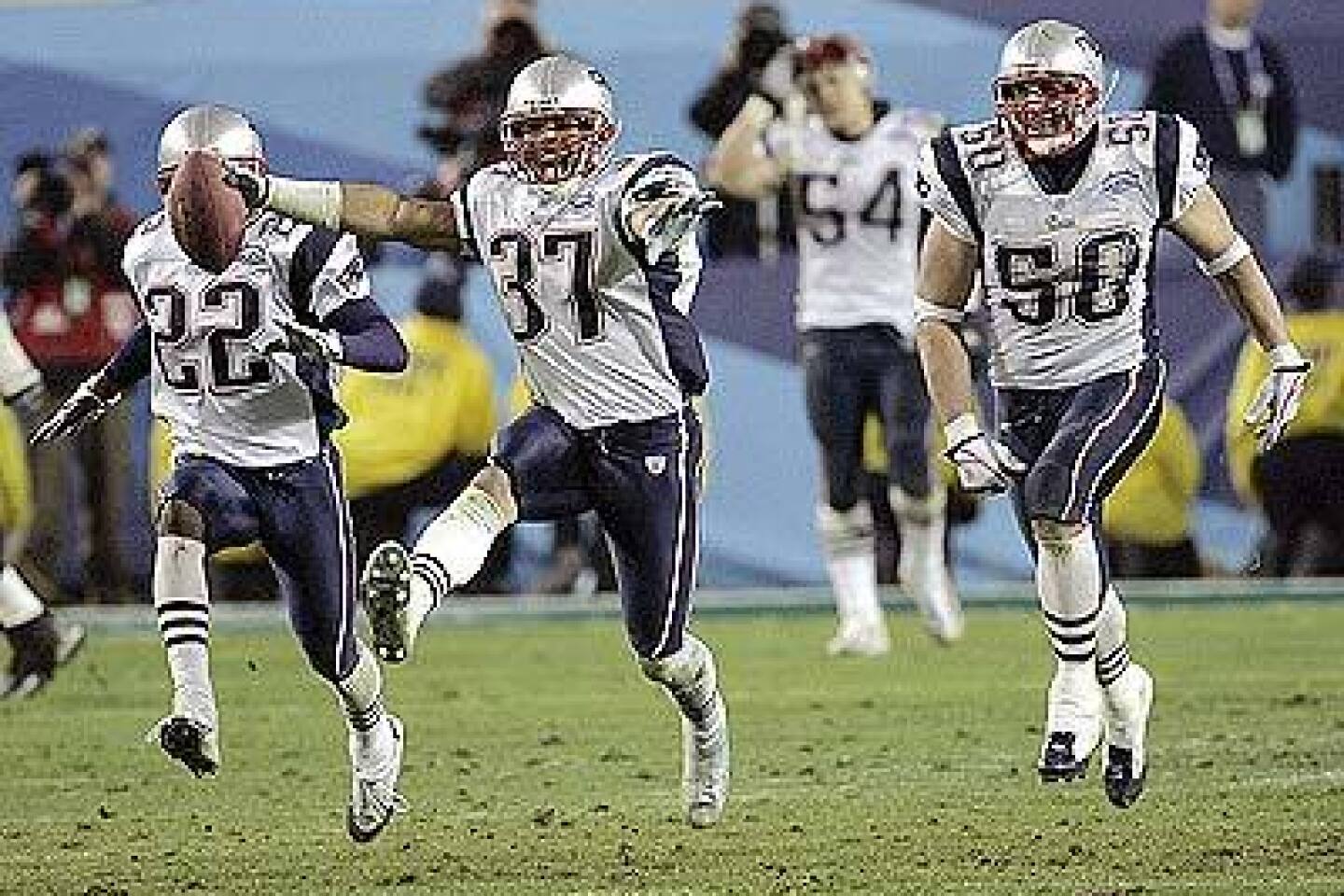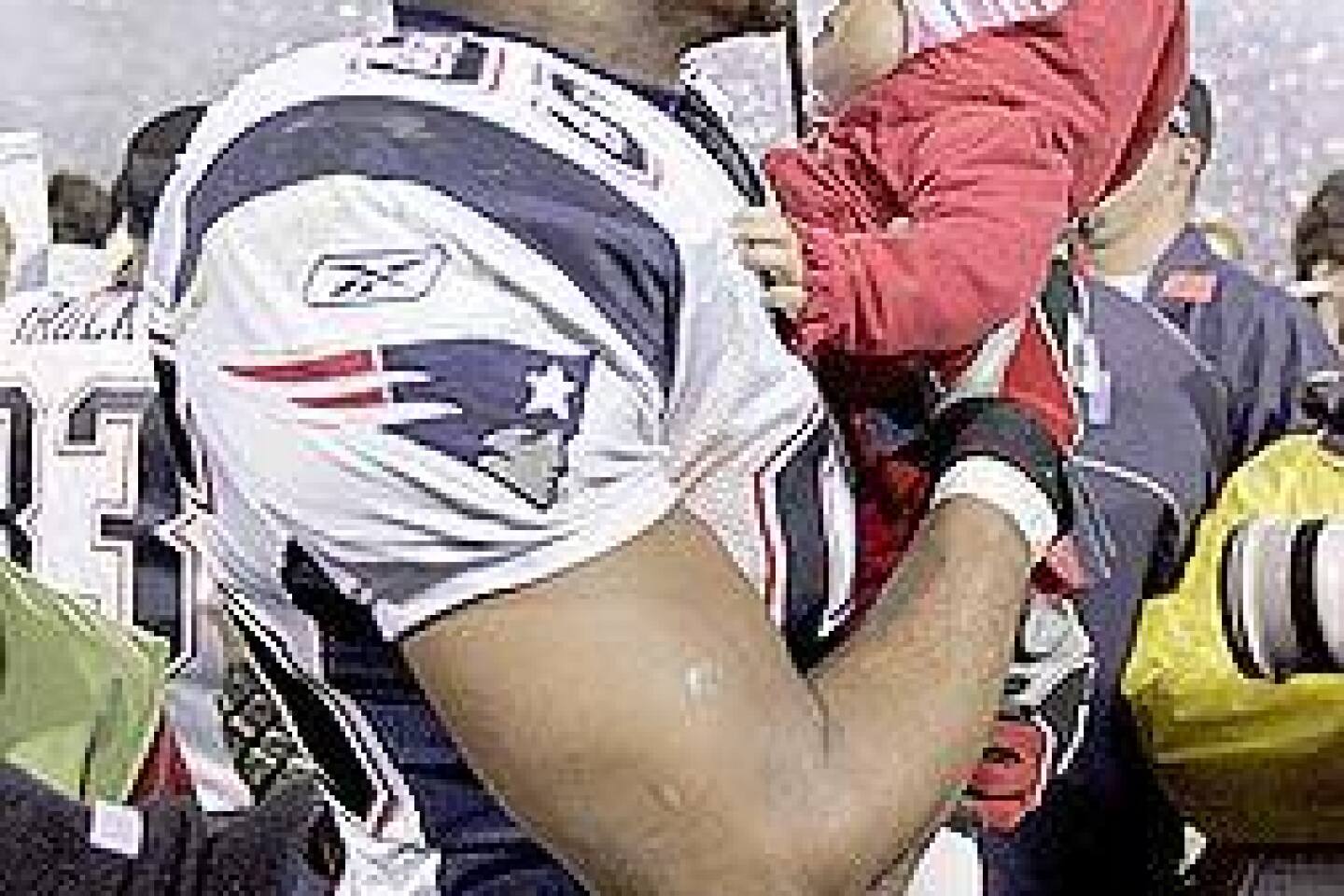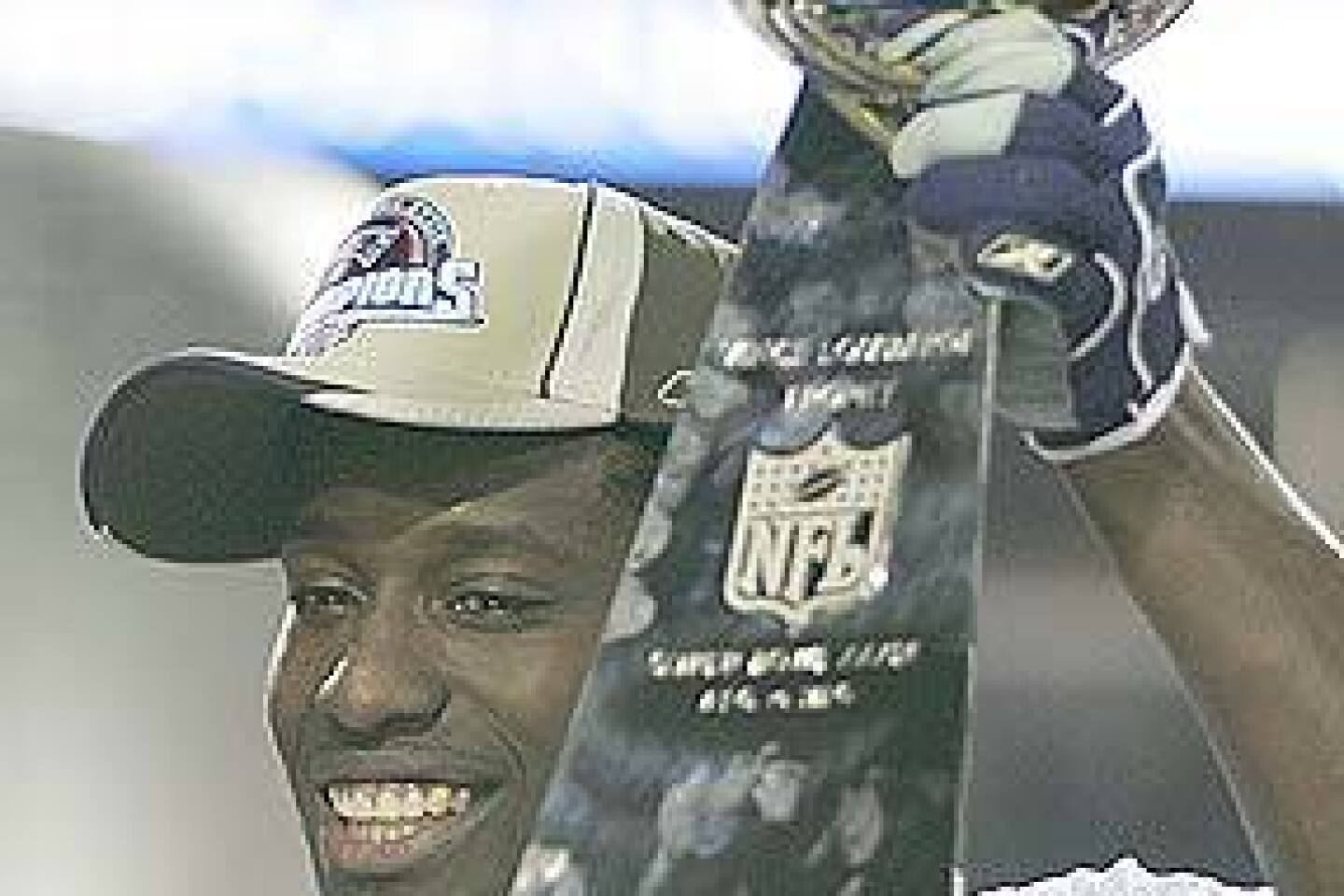Brady the Banker
- Share via
JACKSOVILLE, Fla. — At the age of 26, Tom Brady of the New England Patriots stepped up this week to become the dominant figure in world-class sports. As a passer, he has pulled out three Super Bowl victories in the last four years. And as a banker, he has helped finance the rise of the Patriots to top of the class. For, this season, they paid Brady only about one-third of what he could have made on other pro clubs.
With the two-thirds they saved, the Patriots funded contracts for several other players who helped them beat Philadelphia in the 39th Super Bowl here Sunday, 24-21. And the trade-off seems sensible enough to Brady. He hasn’t protested the use of “his” money this way, reasoning that he makes it up with the increased endorsement pay he earns with every new Super Bowl triumph.
The relevant figures include Brady’s $5 million 2004 salary, about a third of Peyton Manning’s $14 million at Indianapolis.
The Patriots’ salary cap is about $80 million, meaning that under NFL rules that’s all they can pay their 53 players.
If Brady takes home only $5 million, instead of the $14 million (or more) he earned, that leaves $75 million instead of $66 million for other players — enough to upgrade Patriot quality in several positions. And upgrading is what the Patriots are all about under Coach Bill Belichick. They have no real stars, except for Brady. They don’t draft specialist receivers on the first round. They pour more money into the pockets of backup players than any team in the league.
How to Beat the Salary Cap
THE BELICHICK SYSTEM has enabled the Patriots to do what the 31 other NFL clubs have said is impossible in the age of salary caps and free agents, which began a decade ago. It’s “impossible” to launch a pro football dynasty in this era, they said. And, clearly, that’s true for any team trying to build with conventional NFL means — using the draft, trades, and free agency to acquire first-class players in as many positions as possible.
There isn’t enough money in any team’s salary-capped kitty to win Super Bowl titles year after year by drafting the best available college talent and/or trading for top pro talent and/or signing top free agents. Such athletes are so costly they’d soon break any salary-cap bank. And even if enough great players could be identified and imported to win a Super Bowl game or two, many of them would soon defect via free agency, ending any dynasty bid prematurely.
Belichick, who on other teams in other cities recruited his share of costly stars, has reasoned at New England that there has to be a better way. And his way now is to ignore every star — except at quarterback — and identify cheaper talent that can be signed and coached to become, if not great players, members of a great team.
Thus Belichick’s scouts, when out on patrol, walk right on by the good football players that their competitors crave, and, instead, search for potentially good players who, at the moment, have unimportant minor flaws. These prospects might be too short or too small, or they might be unschooled in the arts of defensive or offensive football, or they might have some other failing that masks their true potential.
They do, all of them, have the values Belichick wants: a passion for football, the smarts to play well for a smart team, athletic flexibility, and other so-called intangibles. He wants them self-disciplined and self-motivated and team-oriented and focused. And when he has enough of that type, a dynasty is born.
The Day of $1 Million Backups is Gone
WHEN BILL WALSH was launching his 1980s dynasty in San Francisco, he paid $1 million a year to a backup quarterback, who sat around year after year waiting for Joe Montana to retire. The backup was Steve Young, about whom Walsh guessed right. Young made the Hall of Fame the other day. But in the age of the salary cap, that’s impossible. It’s hard enough finding $1 million for a starter.
Nonetheless, most teams aim to put great football players in as many positions as possible, as hard as that is on the salary cap. For instance, 31 of the 32 pro clubs — all but New England — maintain that the ideal receiver runs the 40 in 4.4 or less, weighs 220 or more and stands 6 feet 3 or higher. And when they spy one in college ball, they’ll pay to get him when he becomes draft eligible — and pay plenty. That’s where their cap money goes, for, in all positions, there are costly “ideal” football players they’ll pay for until the cap money is gone.
At New England, you’d have to stack one of Belichick’s receivers on top of another to get a player that tall. Belichick can’t afford the ideal in order to keep winning Super Bowls. Instead, his scouts search for young receivers who lack ideal credentials but don’t drop the ball, and who possess other values, such as above-average intelligence and a lifelong interest in contributing to a great team.
The Patriots don’t have to pay a lot for that type. Nobody else is looking for smart little receivers or smart little pass rushers who can be beefed up and coached to play something like Lawrence Taylor but who resemble L.T. in absolutely no other way. Nobody else wants and nobody will pay for the kind of players that Belichick brings in every year and coaches into the Super Bowl. And that’s what’s exciting about the Belichick system. He doesn’t recruit stiffs who are then coached to greatness. He recruits players who have Super Bowl talent in several tangible and intangible ways and then coaches them into the Super Bowl.
Patriots Can Win 4 Super Bowls in 5 Years
THE PATRIOTS are going to win their third straight NFL championship a year from now in a cold-weather setting in Detroit, where, playing indoors, they’ll become the first NFL team ever to take four Super Bowl titles in a five-year span. The loss of offensive coordinator Charlie Weis to Notre Dame and defensive coordinator Romeo Crennel to Cleveland — along with the possible loss of other coaches — will hurt, but not fatally, if the Belichick system remains in place. As it surely will.
The goal of the system is simply to win. Routs are out of character and out of favor to Belichick, who has won his three Super Bowls by a combined nine points — in each case by the margin of an Adam Vinatieri field goal. In order, the kicks went 48 yards to beat the Rams at the wire in 2002, 20-17, and then 41 yards to beat Carolina with 4 seconds to play in 2004, 32-29, before the Patriots held on to beat the Eagles after Vinatieri’s 22-yard gimme with half the fourth quarter left in 2005, 24-21.
To the casual fan, that doubtless looks like a pile of good luck — and luck is of course a factor in football as in any other sport. But if Brady couldn’t drive the Patriots into position for the kicks they simply have to have — and if Vinatieri couldn’t come through in the intolerable pressure of a Super Bowl on the line — Belichick, on his recent record, would promote some backups who could. He is always looking for backups, always striving to upgrade.
In any case, bad luck is something that usually happens to other teams, to the Eagles, for instance, who lost Sunday’s Super Bowl not at game time but when wide receiver Terrell Owens went down with a broken ankle Christmas week. The way he played Sunday — when he was the most valuable receiver on the field — combined with the slightly better way he would have played to win the game had he been going at full speed, made Owens the Super Bowl’s most valuable player Sunday, though he didn’t have the media votes to get it. Also in the most-valuable running was Brady, but he didn’t get it either. The winner, Patriot wide receiver Deion Branch, who was actually No. 3 among the deserving, caught 11 passes — all from Brady.
More to Read
Go beyond the scoreboard
Get the latest on L.A.'s teams in the daily Sports Report newsletter.
You may occasionally receive promotional content from the Los Angeles Times.
